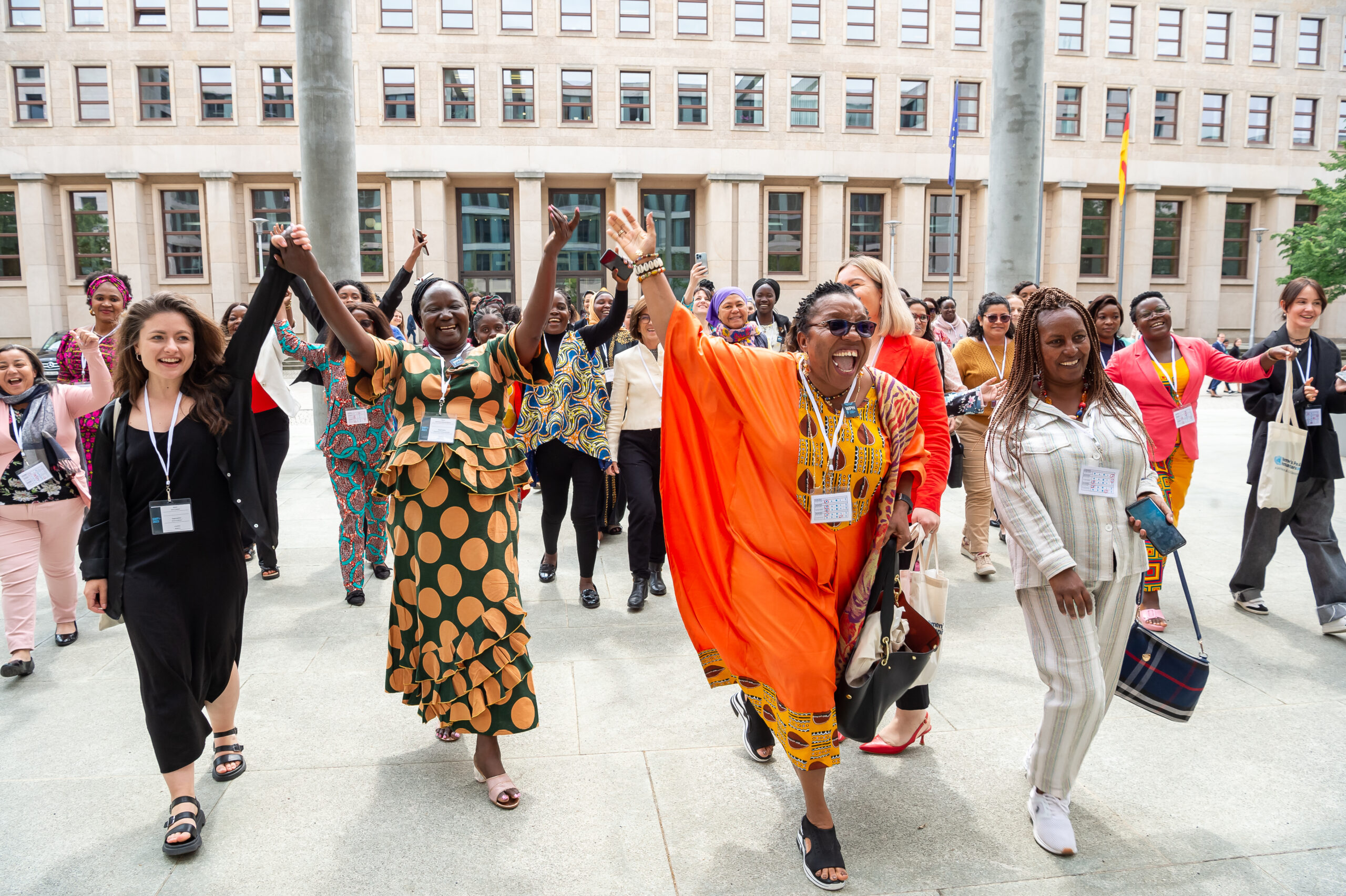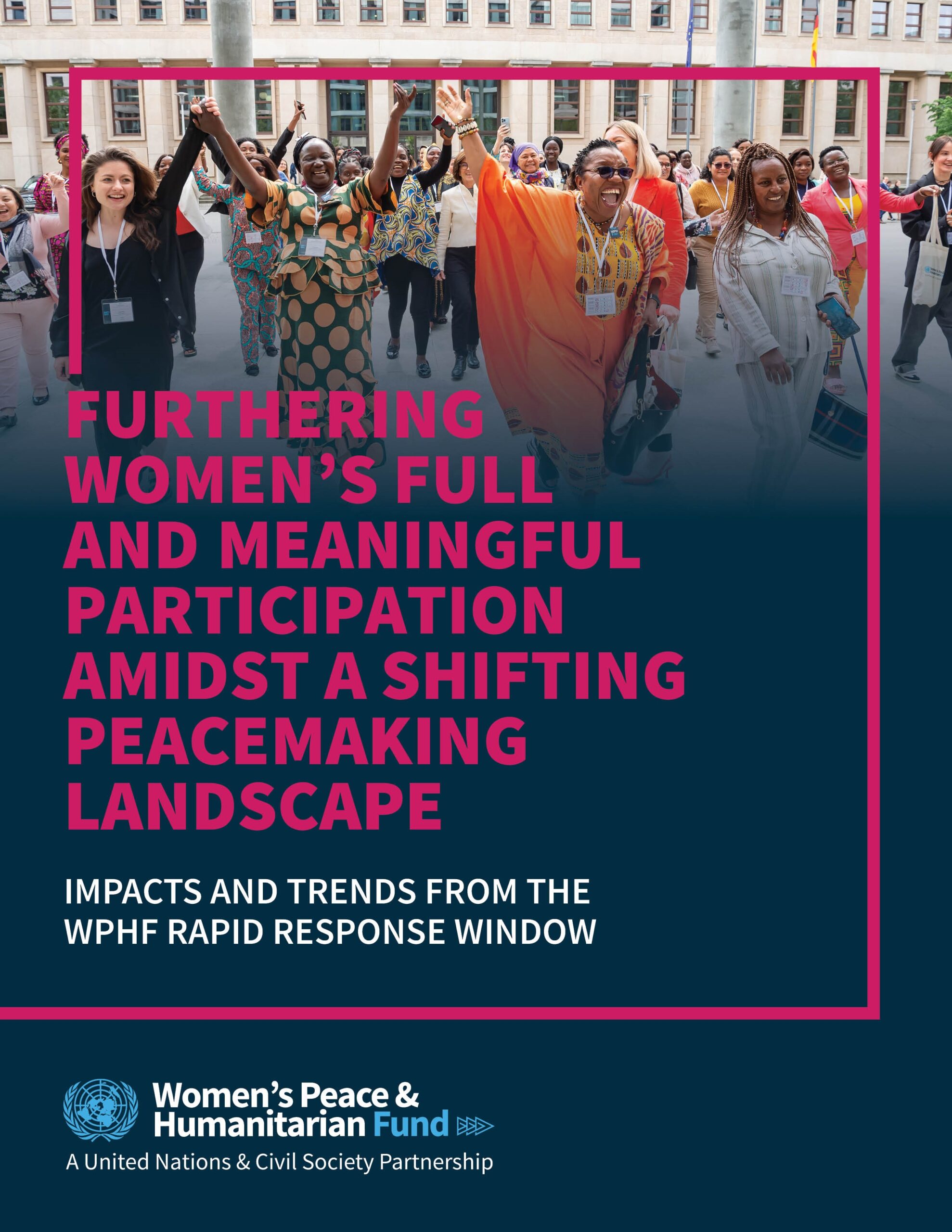Almost five years after its launch in 2020, the Rapid Response Window (RRW) of the United Nations Women’s Peace and Humanitarian Fund (WPHF) has published a new study that takes stock of the results and impacts generated by its support to local women peacebuilders and women’s rights organizations (WROs) during its pilot phase from September 2020 to March 2024.
The paper, titled “Furthering Women’s Full and Meaningful Participation Amidst a Shifting Peacemaking Landscape,” highlights the various experiences, entry points, and strategies implemented by RRW partners to participate and influence Track 1 and Track 2 peace processes and the implementation of peace agreements in countries like Colombia, South Sudan, Kyrgyzstan, Guatemala, the Democratic Republic of the Congo (DRC), Cameroon, Sudan, the Central African Republic (CAR), and Venezuela.
During its pilot phase from September 2020 to March 2024, the RRW received 1,343 proposals and supported the participation of 3,004 women in peace negotiations across 28 countries, funding 135 Women’s Rights Organizations (WROs).
Highlighting a range of conflict and post-conflict settings, the study shows women continue to face systemic barriers to their participation, including exclusion from peace processes, limited speaking time, and lack of decision-making power. Patriarchal norms and bureaucratic barriers perpetuate a ‘male mediation model,’ leaving women marginalized. Despite these challenges, women peacebuilders – with support from the RRW – have accessed key stakeholders, promoted the engagement of marginalized groups, fostered intergenerational dialogue, and localized peace efforts. Additionally, WROs have proven versatile in bridging informal and formal peace efforts, addressing complex issues such as ceasefire and transitional justice.
Ensuring flexibility in adapting to changing political contexts, together with the need to foster coalition-building among women peacebuilders and provide them with psychological support and trauma healing services, are some of the key lessons learned highlighted throughout the paper, which underscores the importance of these elements in fostering women’s resilience and self-confidence, breaking pervasive cycles of violence, and achieving sustainable peace at all levels.
With the launch of this study, the RRW is ushering in a new era entering into its second phase – from October 2024 to December 2027 – seeking to expand its support to WROs, enhance youth participation, and increase strategic outreach across key regions.

